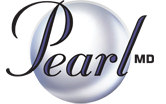By Tiffy Thompson, She Does The City.

Aging is no picnic. Little lines start etching their way across your forehead, gray hairs seem to be cropping up more and more, and you have less energy than ever. But it doesn’t have to go down that way!
We chatted with Dr. Jennifer Pearlman, a medical doctor and attending staff physician at Mount Sinai Hospital, where she helps run the largest menopause clinic in the country. She has an expert designation in Women’s Health, Mental Health and cosmetic medicine and is board certified in Anti-aging and Regenerative Medicine. Here, she gives her best tips on how to age proactively.
Balance your hormones
From our sex hormones (estrogen and testosterone), to the stress hormone cortisol and the king metabolic signal, insulin; our 200+ hormones regulate our health, wellbeing and aging. Keeping them in balance can help us deal with unpleasant symptoms like sleep and mood disturbances as well as reduce risk of disease.
Eat like the Islanders
Green up your diet! The longest living population of the Okanawi Islands off the coast of Japan consider their plant-based, whole food mineral-rich diet that is low down on the food chain and void of processed food additives and chemicals to be a key to their longevity.
Stay strong and move your body outdoors
A strong frame is required for a healthy brain. Outdoor activity has been shown to reduce depression and improve memory while weight resistance training can help maintain bone and muscle mass to reduce the risk of frailty.
Protect yourself from the sun
Young women tend not to be as diligent about sun protection and may start to see early sun and age related changes like laxity, fine lines, pigment as well as sunspots. As early as our thirties, women start to see some facial expression lines, like frown lines and forehead creases appear at rest and develop into deeper furrows. These lines may result in women looking angry, tired or sad even if they are not. As a result, many women in this age group seek preventative neuromodulator (i.e. Botox) treatment to relax these expression lines and prevent lines at rest for developing. This approach is coined "prejuvenation" as the goal is to prevent the signs of aging in the first place as opposed to waiting and having to undo them. By starting preventative treatments earlier, younger women truly have the choice to change the face of their aging.
Start preventative treatments now
For women, the decline in ovarian hormone function through the perimenopause years of our mid-forties produces accelerated aging. In fact, from 40 to 50 years women age twice as fast as any other decade. Throughout the menopause transition, a hormone balancing approach can help reduce unpleasant symptoms like flashes, sleep and mood disturbances and memory changes while also reduce the risk of diseases like bone loss (osteoporosis), memory problems (dementia) and heart disease. An individualized approach to evaluating risk and benefit must consider a women's health history, goals and preferences under the careful guidance of a qualified physician expert in this area.
Your DNA is not your destiny
Your parents don’t control everything. While some of us may carry genetic predispositions, our DNA is not our destiny. Instead, it is a roadmap that is influenced by our lifestyle and choices in determining our health, risk of disease and aging. The new science of "Epigenetics" describes the interplay of gene and environmental factors in determining health outcomes. Genetic testing can help uncover some of these weak predispositions that when considered together can be used to guide a personalized lifestyle plan to optimize health and wellbeing.
At PearlMD we couple the most advanced diagnostic tests and assessments to uncover these risks and partner with our patients to build a customized lifestyle, nutritional and hormone plan. Our model of care lies at the frontier of personalized integrative medicine, and enables us to help our patients achieve AGELESS VITALITY by aging well from the inside out.
Originally posted as "Age Proactively: Dr. Jennifer Pearlman's 6 Tips for Better Aging", She Does The City.com.

Aging is no picnic. Little lines start etching their way across your forehead, gray hairs seem to be cropping up more and more, and you have less energy than ever. But it doesn’t have to go down that way!
We chatted with Dr. Jennifer Pearlman, a medical doctor and attending staff physician at Mount Sinai Hospital, where she helps run the largest menopause clinic in the country. She has an expert designation in Women’s Health, Mental Health and cosmetic medicine and is board certified in Anti-aging and Regenerative Medicine. Here, she gives her best tips on how to age proactively.
Balance your hormones
From our sex hormones (estrogen and testosterone), to the stress hormone cortisol and the king metabolic signal, insulin; our 200+ hormones regulate our health, wellbeing and aging. Keeping them in balance can help us deal with unpleasant symptoms like sleep and mood disturbances as well as reduce risk of disease.
Eat like the Islanders
Green up your diet! The longest living population of the Okanawi Islands off the coast of Japan consider their plant-based, whole food mineral-rich diet that is low down on the food chain and void of processed food additives and chemicals to be a key to their longevity.
Stay strong and move your body outdoors
A strong frame is required for a healthy brain. Outdoor activity has been shown to reduce depression and improve memory while weight resistance training can help maintain bone and muscle mass to reduce the risk of frailty.
Protect yourself from the sun
Young women tend not to be as diligent about sun protection and may start to see early sun and age related changes like laxity, fine lines, pigment as well as sunspots. As early as our thirties, women start to see some facial expression lines, like frown lines and forehead creases appear at rest and develop into deeper furrows. These lines may result in women looking angry, tired or sad even if they are not. As a result, many women in this age group seek preventative neuromodulator (i.e. Botox) treatment to relax these expression lines and prevent lines at rest for developing. This approach is coined "prejuvenation" as the goal is to prevent the signs of aging in the first place as opposed to waiting and having to undo them. By starting preventative treatments earlier, younger women truly have the choice to change the face of their aging.
Start preventative treatments now
For women, the decline in ovarian hormone function through the perimenopause years of our mid-forties produces accelerated aging. In fact, from 40 to 50 years women age twice as fast as any other decade. Throughout the menopause transition, a hormone balancing approach can help reduce unpleasant symptoms like flashes, sleep and mood disturbances and memory changes while also reduce the risk of diseases like bone loss (osteoporosis), memory problems (dementia) and heart disease. An individualized approach to evaluating risk and benefit must consider a women's health history, goals and preferences under the careful guidance of a qualified physician expert in this area.
Your DNA is not your destiny
Your parents don’t control everything. While some of us may carry genetic predispositions, our DNA is not our destiny. Instead, it is a roadmap that is influenced by our lifestyle and choices in determining our health, risk of disease and aging. The new science of "Epigenetics" describes the interplay of gene and environmental factors in determining health outcomes. Genetic testing can help uncover some of these weak predispositions that when considered together can be used to guide a personalized lifestyle plan to optimize health and wellbeing.
At PearlMD we couple the most advanced diagnostic tests and assessments to uncover these risks and partner with our patients to build a customized lifestyle, nutritional and hormone plan. Our model of care lies at the frontier of personalized integrative medicine, and enables us to help our patients achieve AGELESS VITALITY by aging well from the inside out.
Originally posted as "Age Proactively: Dr. Jennifer Pearlman's 6 Tips for Better Aging", She Does The City.com.




